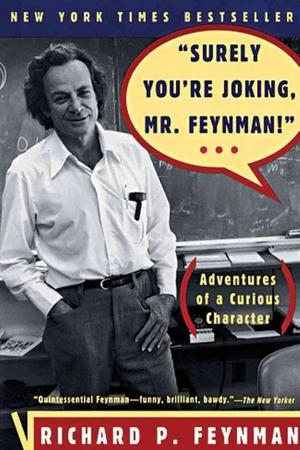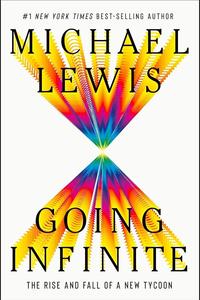
"Surely You're Joking, Mr. Feynman!": Summary & Notes
by Richard Feynman
Related reading: Shoe Dog, Bad Blood, Going Infinite
In One Sentence
Nobel physicist Feynman's adventures in physics, art, safecracking, and bongo drums—a celebration of curiosity and unconventional thinking.
Key Takeaways
- Follow curiosity everywhere
- Question authorities
- Physics is play
- Learn by doing
- Don't fear looking foolish
- Joy is in finding things out
Summary
A funny, compelling read about the interesting life of a brilliant scientist and American. No understanding of physics required, Feynman illustrates life lessons he’s learned through hilarious anecdotes that range widely from education, to building the atomic bomb, to drumming.
Who Should Read This Book
- Scientists and curious minds
- Anyone who loves learning
- Unconventional thinkers
FAQ
Who was Richard Feynman?
A Nobel Prize-winning physicist known for QED, the Challenger investigation, and extraordinary curiosity.
📖 Chapter-by-Chapter Breakdown
Click to expand the full detailed notes for every chapter →
📖 Chapter-by-Chapter Breakdown
Click to expand the full detailed notes for every chapter →
Notes
- Innovation is very difficult in the real world.
- I don’t know what’s the matter with people: they don’t learn by understanding; they learn by some other way—by rote, or something. Their knowledge is so fragile!
- “I could do that, but I won’t” = “I can’t”.
- When trying to understand something, keep coming up with examples, and question people about them.
- Sometimes, to solve a problem, you just need a different “box of tools”.
- It was a brilliant idea: You have no responsibility to live up to what other people think you ought to accomplish. I have no responsibility to be like they expect me to be. It’s their mistake, not my failing.
- Seek activities in your life (like teaching) which constantly allow you to contribute, and give you ideas.
- Things like this are a good example of positive constraints.
- Your work should feel like “play” - work should “flow out effortlessly”.
- Do not trust your memory, and do not make decisions about something when you are deprived of it (like love).
- Memorizing, or learning things through words, does not equal understanding. Constantly ask yourself, “How can I apply this? What examples can I think of? Where does this apply in the real world?"
- Also, ask questions that may seem “dumb” if you don’t understand.
- Don’t bet when the odds are against you - bet against the man who doesn’t realize the odds are against him.
- In other words, find an angle, or a different way of coming at the problem.
- Beware of “offers you must refuse” - offers that might enhance your life in some aspects, but compromise them in others.
- Example: a large salary would likely incur bad behaviour.
- Don’t pay attention to anything by “experts”. Instead, always calculate things yourself from first principles.
- Art is for giving somebody, individually, pleasure.
- Everyone has insecurities.
- Much of modern education is taught by books which teach things by words, not by example, and therefore don’t actually help understanding at all.
- We believe many things - like we know how to educate - yet reading scores, etc. keep decreasing. Why is this? Where else do we believe we know something, yet the results show otherwise?
- You must strive for scientific integrity - utter honesty. This involves bending over backwards to explain why your experiment might be wrong, potential sources of error, details that may cause doubt on your interpretation, etc.
- When you publish details, you must include those that conflict, and you should always publish those experiments or theories that fail, too.
- You must try to give all the information to help others judge the value of your contribution, not just the information that leads to judgement in one direction or another.
- The first principle is that you must not fool yourself—and you are the easiest person to fool. So you have to be very careful about that. After you’ve not fooled yourself, it’s easy not to fool other scientists. You just have to be honest in a conventional way after that.
- So I have just one wish for you—the good luck to be somewhere where you are free to maintain the kind of integrity I have described, and where you do not feel heed by a need to maintain your position In the organization, or financial support, or so on, to lose your integrity. May you have that freedom.




